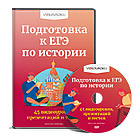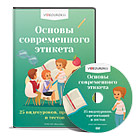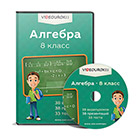А.А.Короткевич, аспирант БФУ им. И. Канта,
e-mail:[email protected]
Возможности безотметочной и рейтинговой системы оценивания на уроках английского языка младших школьников в сфере инклюзивного образования
Аннотация: В настоящей статье рассмотрены возможности безотметочной и рейтинговой системы оценивания на уроках английского языка младших школьников в сфере инклюзивного образования. Проанализирована сущность инклюзивного образования, выявлены его особенности. Также обоснована потребность в разработке и использовании новых подходов к оцениванию учебно-познавательной деятельности младших школьников в сфере инклюзивного образования, в том числе на уроках английского языка. Сделаны выводы, что индивидуально-дифференцированный подход безотметочной и рейтинговой систем оценивания на уроках английского языка позволяет учитывать особые образовательные потребности каждого ребенка и обеспечить благоприятные условия в сфере инклюзивного образования.
Ключевые слова: инклюзивное образование, специальное образование, дети с ограниченными возможностями здоровья (ОВЗ), подходы, безотметочное обучение, рейтинговая система оценивания, урок английского языка, младшие школьники, учебно-познавательная деятельность.
Оценивая результаты учебно-познавательной деятельности, включенной в уроки иностранного языка, ученики начальных классов с особым психофизическим развитием - непростая проблема как в России, так и за рубежом. Это актуально как в общеобразовательной школе, так и в инклюзивном образовании. Поскольку мы изучаем системы оценки и без голосования для оценки учащихся начальных классов на уроках английского языка в области инклюзивного образования, мы рассмотрим концепцию и характеристики этого образования.
Инклюзивное образование - это образование, в котором все дети, несмотря на свои физические, интеллектуальные и другие характеристики, включены в общую систему образования и учатся в средних школах вместе со своими сверстниками.
Инклюзия означает раскрытие каждого учащегося через образовательную программу, которая является довольно сложной, но соответствует их навыкам . Этот тренинг основан на идеологии, которая устраняет все формы дискриминации в отношении детей, гарантирует равное обращение со всеми людьми, но создает особые условия для детей с особыми образовательными потребностями. Инклюзия учитывает потребности, а также особые условия и поддержку, необходимые для успеха ученика и преподавателей.
Сегодня у нас есть три подхода к обучению детей-инвалидов (ОВЗ). Особенностью инклюзивного образования является то, что:
- работа по совершенствованию образовательных структур, систем и методов для обеспечения потребностей всех детей;
- является частью большой стратегии по созданию общества, которое принимает все;
- это динамичный процесс, который постоянно развивается;
- признает, что все дети могут учиться.
В связи с этим школам, занимающимся инклюзивной практикой, сложно перейти на другую систему оценок. Большой опыт использования существующей системы и его уверенность в себе имеют большое значение. В результате 5-балльная система остается доминирующей. Это самая проблемная область, особенно острая в практической деятельности.
Обратим внимание, что процесс оценки изучается в различных научных книгах и нормативных документах, в том числе для учащихся начальной школы с особыми потребностями. Существующие научные позиции позволяют нам разработать план оценки для учащихся с ограниченными возможностями от начальных до английских классов. Однако они не решают важных проблем в области инклюзивного образования и реализуют индивидуальный подход к оценке учащихся начальной школы с особыми потребностями в смешанных группах детей. На сегодняшний день учителя начальных классов в области инклюзивного образования не имеют необходимой методической поддержки для реализации одного из основных элементов педагогического процесса. [1].
Поэтому активное развитие интеграционных и интеграционных тенденций в образовательной практике требует более глубокого изучения проблемы оценки младших школьников в области инклюзивного образования на уроках английского языка.
В современной педагогике существует множество методов оценки младших школьников на уроках английского языка. [2]. Преподаватели иностранных языков, работающие в сфере инклюзивного образования, в основном используют классический метод оценки. Это предполагает сосредоточение внимания на уровне знаний, навыков и способностей учащихся начальной школы с ограниченными возможностями; за содержание программы (Б.Г. Ананьева, П.П. Блонский, А.С. Макаренко, В.А. Сухомлинский, Ю.К. Бабанский, В.П. Беспалко, И.Я. Лернер, А.И. Липкина, И.Ф. Харламова, Г.Ю. Ксензова и др. [3].
В то же время все чаще используются компоненты различных рейтинговых систем или их комбинации. В то же время оценивается формирование знаний, умений и навыков. По нашему мнению, эта тенденция не помогает учитывать индивидуальные особенности учащихся начальной школы с особыми потребностями, определять их успехи в освоении учебной программы, а также совершенствовать компенсирующие знания и навыки. Это требует использования бессмысленной и оценочной системы для оценки детей младшего школьного возраста в рамках инклюзивного образования, включая уроки английского языка, включая положения о личностном и компетентностном образовании, индивидуализации и дифференциации образования.[1] Возможности этих систем оценки выражаются в том, что внимание смещается с социально-нормативных стандартов оценки на индивидуально ориентированные стандарты, увеличивается число индивидуально ориентированных стандартов и вводятся совершенно новые индивидуально ориентированные стандарты, основанные на компенсирующей компетентности: личностное отношение, образование и практическое применение.
Подчеркнём, что индивидуально-дифференцированный подход бессмысленных и рейтинговых систем оценки на уроках английского языка позволяет учитывать особые образовательные потребности каждого ребенка и обеспечивать благоприятные условия в сфере инклюзивного образования.
Остановимся более подробно на возможностях безоценочных и рейтинговых систем оценки на уроках английского языка учащихся начальной школы с особыми потребностями. Суть безотметочной технологии обучения заключается в другой процедуре оценки, другой позиции учителя, которая бесценна. С этой точки зрения было бы правильнее определить неоценимое традиционное образование, так как у ребенка нет места для оценки себя - и это, как отмечают современные психологи, является «краеугольным камнем» независимости, образовательные способности к обучению в целом (и самообучению в частности).На наш взгляд, безотметочное обучение (при условии его правильной организации), по сути, представляет собой оценочное обучение. Но, в том смысле, что термин «безотметочное обучение» крайне неудачен, он провоцирует ложное восприятие – как будто бы речь идет об отмене отметок и самого оценивания. Отсюда и негативное отношение – любой здравомыслящий взрослый понимает, что нельзя чему-либо научить ребенка, не оценивая результатов обучения.
По своей сути безотметочное обучение представляет собой такое обучение, при котором ребенок учится самостоятельно оценивать свои действия, соотносить собственные результаты с некоторыми общепринятыми критериями, то есть выращивается оценочная самостоятельность ребенка. Понятно, что реализация такого обучения в условиях обычной отметочной системы, когда функции оценивания полностью сосредоточены в руках учителя, практически невозможна.
Таким образом, безотметочное обучение представляет собой поиск нового подхода к системе оценивания, который позволил бы преодолеть недостатки существующей «отметочной» системы оценивания.
В качестве основных целей безотметочного обучения на уроках английского языка младших школьников с ОВЗ можно выделить следующие:
– сделать оценку учащихся более содержательной, объективной и дифференцированной. Указанной цели можно достичь, если мы подчиним безотметочное обучение решению более важной стратегической задачи модернизации всей российской школы- воспитанию самостоятельны, инициативных и ответственных молодых людей, способных в новых социально-экономических условиях быстро и эффективно найти своё место в обществе.
- сформировать и развить оценочную деятельность у младших школьников с ОВЗ, с помощью гуманного педагогического процесса ориентированного на личность ребенка. Указанное выступает и условием, и итогом сотрудничества между учителем и младшими школьниками с ОВЗ на уроках английского языка, закрепляет взаимопонимание и взаимодействие.
В рамках исследования возможностей безотметочной системы оценивания на уроках английского языка младших школьников с ОВЗ рассмотрим использование технологии разноуровневого и дифференцированного обучения на уроках английского языка в сфере инклюзивного образования.
Преподавание английского языка в школах для детей с ОВЗ является очень актуальной проблемой. [4] Теперь, когда дети с когнитивными /поведенческими проблемами и хорошо приспособленными учениками учатся вместе в обычном классе, часто возникают неловкие ситуации. В частности, у педагогов зачастую отсутствует четкая стратегия проведения занятий в такой смешанной детской команде; они психологически не готовы к этому.
В связи с тем, что различия в уровне обучения учащихся сразу не одинаковы в каждом классе, технология дифференциации в классе с добавлением элементов многоуровневого образования наиболее приемлема и актуальна в организации учебного процесса, в том числе на уроках английского языка.
Учитывая типологические особенности каждого учащегося, учитель делит класс на условные группы «А», «В», «С». Используются методы командной работы для динамических пар или групп. Задачи группы «С» установлены в качестве основного стандарта - минимального или репродуктивного. Задачи «В» создаются на аналитически-синтетическом уровне и предлагают умственную деятельность, необходимую для решения задач. В задачи группы «А» входит творческий или продуктивный уровень. Младшие школьники применяют свои знания на уроках английского языка осознанно и творчески, составляют мини-диалоги и монологические высказывания по теме.
Таким образом, по нашему мнению, одной из основных возможностей безотметочной системы оценивания на уроках английского языка младших школьников в сфере инклюзивного образования является помощь ребенку с ОВЗ в обретении адекватной самокритичности и уверенности в себе.
Следующим новым процессом в сфере оценивания учебно-познавательной деятельности на уроках английского языка младших школьников, в том числе с ОВЗ является рейтинговая система.
Отметим, что данная система достаточно давно используется в европейских странах, но в нашей стране стала применяться относительно недавно только в ряде высших и средних специальных учебных заведениях, а также в некоторых средних школах в порядке эксперимента. Необходимость внедрения рейтинговой системы оценивания результатов обучения отмечают А.Ф. Гусева, В.Я. Зинченко, Р.Я. Касимов, А.В. Левин, В.И. Огорелков, А.Ф. Сафонов и др. Кроме того, проблемой рейтингового контроля знаний учащихся занимались B.C. Аванесов, Ю.А. Афанасьев, В.П. Беспалько, Н.К. Гайдай, М.Т. Громова, Талызина и др.
Как правило, под рейтингом понимается «накопленная отметка» как по отдельным предметам, так и по циклу дисциплин за некоторый период обучения. Возможности рейтинговой системы оценивания, в том числе на уроках английского языка, младших школьников с ОВЗ заключаются в том, что из всех систем оценивания знаний, она позволяет более объективно оценивать знания учеников, активизирует их к самостоятельному поиску материалов. Это, в свою очередь, способствует повышению заинтересованности к изучению английского языка и психологической трансформации младших школьников с ОВЗ из категории «пассивных зрителей и слушателей» в категорию активных участников процесса обучения. Полагаем, что большинство недочетов классической системы оценивания возможно убрать с помощью технологии рейтинговой системы оценки, в том числе на уроках английского языка, младших школьников в сфере инклюзивного образования.
Одним из стимуляторов учебного процесса выступает информационная открытость системы. Это предоставляет возможность ученикам сравнивать итоги своего обучения с итогами одноклассников [5]. Более того, возможностью рейтинговой системы является то, что она обеспечивает систематическую, максимально мотивированную деятельность не только младших школьников с ОВЗ на уроках английского языка, но и педагога.
Целью использования рейтинговой системы оценивания является формирование условий для стимулирования самостоятельности младших школьников с ОВЗ инструментами современного оценивания результатов их учебной деятельности соразмерно фактическим достижениям.
При этом, преимущество рассматриваемой системы оценивания заключается в том, что нет необходимости в коренном изменении самого учебного процесса, она удачно согласуется с занятиями по английскому языку в режиме технологий личностно-ориентированного обучения.
Так, выполняя определенное задание по английскому языку, учащийся получает соответствующее количество баллов, в зависимости от типа задания и от правильности его выполнения.
Результат использования нами рассматриваемых систем оценивания в работе при проведении уроков английского языка и системы отслеживания учебных достижений младших школьников показал, что рейтинговое исследование, безотметочное обучение, отслеживание личностного развития ученика активизируют самостоятельную деятельность учеников и учителей в течение всего учебного года и создают условия для сохранения физического и психического здоровья как учащихся, так и учителей нашей школы.
Резюмируя вышеизложенное, можно прийти к следующим выводам. Поскольку безотметочная и рейтинговая системы оценивания взаимосвязаны с измерением не конечного результата, а процесса движения к результату, целесообразно проводить замер сформированности системных знаний и обобщенных умений [6]. Оценка в данном случае выступает многомерной и межпредметной, ориентированной на измерение не «книжных», а фактических познаний и навыков, введенных в опыт жизнедеятельности. Ее методика разрабатывается согласно требованиям практической и прикладной направленности в сфере инклюзивного образования, целесообразности качественной оценки, способствующей демонстрации незаметных сторон учебного процесса учащегося с ОВЗ, и обеспечить комплексное видение его способностей [7].
Таким образом, использование безометочной и рейтинговой систем оценивания на уроках английского языка младших школьников в сфере инклюзивного образования предоставляет большие возможности, в том числе возможность оценивать не результат деятельности, а уровень компетентности учащегося, степень присвоения соответствующей компетенции, стимулирует самостоятельную деятельность и создают условия для сохранения физического и психического здоровья как самих школьников с ОВЗ, так и учителей английского языка.
Проведенный нами анализ позволяет сказать, что педагогическая наука и практика предлагает системе образования различные способы безотметочного и рейтингового оценивания, в том числе на уроках английского языка, младших школьников в сфере инклюзивного образования в рамках обновленных федеральных государственных образовательных стандартов начального общего образования. Их необходимо использовать и модернизировать в зависимости от конкретных условий.
Литература:
Аксенов А.А. Педагогические условия реализации личностноориентированного подхода к оценке учащихся младших классов. Рязань, 2002 - 242 с.
Дзебисова А.К., Кокаева И.Ю. Инновационные модели обучения в региональном образовательном пространстве // Мир науки, культуры, образования. 2019. №3 (76). С. 84-85.
Кокаева И.Ю. Условия психоэмоционального оздоровления младших школьников // Проблемы современного педагогического образования. 2018. №60-1. С. 154-157.
Корзюк А.А. Компетентностный подход в образовании: содержание и условия формирования ключевых компетенций, 2015. №10. С. 43–47
Сидамонти Э.Т., Кокаева И.Ю. Инновационные подходы к профессиональной подготовке студентов-будущих учителей в условиях реализации интегрированного (инклюзивного) образования // Проблемы современного педагогического образования. 2017. №56-5. С. 186-193.
Тимофеев В.А. Компетентностный подход в образовании младших школьников. Вестник Бурятского государственного университета. 2014. №1(4). С 38–40.
Шульмин, М. П.Проблемное решение социального и психологического сопровождения студентов-инвалидов в процессе их профессионального образования / М. П. Шульмин // Дефектология, 2010. - №3. – С. 88-92
A. Korotkevich, PhD student, Institute of Education
Immanuel Kant Baltic Federal University
e-mail: [email protected]
Possibilities of a ungraded and rating system for assessing English classes in primary school in the field of inclusive education
Annotation: This article explores the possibilities of a non-remarked and rating system of assessment in english classes of junior students in the field of inclusive education. The essence of inclusive education has been analyzed and its features have been revealed. The need to develop and use new approaches to assessing the educational activities of junior students in inclusive education, including English lessons, is also justified. It is concluded that the individual-differentiated approach of non-marks-and-rating assessment systems in English lessons allows to take into account the special educational needs of each child and provide favorable conditions in the field of inclusive education.
Keywords: inclusive education, special education, children with disabilities (HIA), approaches, spotless learning, rating system of assessment, English lesson, primary school students, educational and cognitive activities
Assessing the results of educational activities, including in foreign language lessons, junior schoolchildren with special needs of psychophysical development is not an easy problem both in Russia and abroad. It is relevant in both school-wide and inclusive education. As we explore the inconspicuous and rating system for assessing junior students in English language classes in inclusive education, let's look at the concept and features of this education.
Inclusive education is an education in which all children, despite their physical, intellectual and other characteristics, are included in the general education system and are enrolled in general education schools with their peers.
Inclusion means the disclosure of each student through an educational program, which is quite complex, but corresponds to his abilities. This education is based on an ideology that excludes any discrimination against children, which ensures equal treatment for all people but creates special conditions for children with special educational needs.
Inclusion takes into account the needs, as well as the special conditions and support required by the student and teachers to succeed.
To date, we have 3 approaches in the education of children with disabilities:
1.Differentiated (creation of correctional institutions of 8 types)
2.Integrated (creation of corrective classes)
3.Inclusive (education of children with disabilities in a regular educational institution)
The peculiarity of inclusive education is that it:
-works to improve educational structures, systems and techniques to meet the needs of all children;
-is part of a big strategy to create a society that accepts all;
-is a dynamic process that is constantly in development;
-recognizes that all children can learn.
According to experts in the field of inclusive education (G. Bunch, T. Booth, R. Siegler, D. Mitchell; M. Einskov, S.V. Alyokhina, T. L. Chapel, etc.), the existing rating system poorly differentiates students in terms of success, as well as has a low potential for motivation and learning.
As a matter of all-time, schools that perform inclusive practices are having difficulty switching to other assessment systems. It is important to have a long experience with the existing system and trust in it. As a result, the 5-point system remains dominant. This is the most problematic field, which is particularly acutely felt in practical activities.
It should be noted that the evaluation process is investigated in a variety of scientific papers and regulations, including for junior students with disabilities. Existing scientific positions allow us to develop a plan for assessing junior schoolchildren with disabilities in English lessons. However, they do not address important challenges in inclusive education and take a one-to-one approach to assessing junior schoolchildren with disabilities in mixed children's groups. To date, the teacher of junior classes in the field of inclusive education does not have the necessary methodical provision for the implementation of one of the main elements of the pedagogical process. Namely, refined criteria and evaluation indicators, evaluation tools of ungraded and graded training, which could help to emphasize strengths, introduce into the pedagogical process and create an environment of success for each junior schoolchildren with disabilities, intensify his positive educational motivation.
It should also be mentioned that the active development of integration and inclusive education in the educational practice requires a more in-depth study of the problem of the assessment of junior students in the field of inclusive education in English lessons.
Nowadays, pedagogy has a variety of approaches to the assessment of junior students in English classes. Foreign language educators who work in inclusive education mainly use the classic assessment approach. It involves a focus on the level of formation of the knowledge, skills and skills of younger students with disabilities; for the content of the program (B.G. Ananyeva, P.P. Blonsky, A.S. Makarenko, V.A. Sukhomlinsky, J.K. Babansky, V.P. Bespalko, I.Y. Lerner, A.I. Lipkina, I.F. Kharlamov, G.Y. Xenzova, etc.) [3].
Meanwhile, at the present stage, the components of different evaluation systems or their combination are increasingly used. At the same time, as a result, the formation of knowledge, skills and skills is evaluated. This trend, in our opinion, is not conducive to taking into account the individual characteristics of junior students with disabilities, fixing their progress in the assimilation of the curriculum, improving compensatory knowledge and skills.
This necessitates the use of a non-remarked and rating system for assessing junior pupils in inclusive education, including in English language lessons, taking into account the provisions of the personal-oriented and education, individualization and differentiation of learning.
The possibilities of these assessment systems are expressed in shifting attention from socio-regulatory assessment standards to individually-oriented ones, increasing the number of individually-oriented benchmarks, introducing completely new individual- oriented benchmarks based on compensatory competency: personal attitude, formation and application in practice of children with HIA compensatory knowledge and skills.
It should be noted that the individual-differentiated approach of non-marks-up and rating rating systems in English lessons allows to take into account the special educational needs of each child and provide favorable conditions in the field of inclusive education.
Let's take a closer look at the possibilities of non-remarked and rating systems of assessment in English lessons of younger schoolchildren with disabilities.
The essence of the technology of unmarked training consists in a different procedure of evaluation, a different position of the teacher, which is not invaluable. From this point of view, it would be more accurate to call traditional shift training invaluable, as there is no place for the child to assess himself - and this, as modern psychologists note, is the "cornerstone" of the educational autonomy of the ability to learning in general (and self-learning in particular).
In our opinion, non-precise training (provided it is properly organized) is, in fact, an assessment training. But, in the sense that the term "non-material training" is extremely unfortunate, it provokes a false perception - as if it were a question of abolishing marks and the evaluation itself. Hence the negative attitude - any sane adult understands that it is impossible to teach a child anything without evaluating the results of education.
At its core, non-stop learning is a training in which a child learns to evaluate his or her own actions, to correlate his own results with some generally accepted criteria, i.e. an appraisal child's independence. It is clear that the implementation of such training in the conditions of the usual marking system, when the functions of evaluation are fully concentrated in the hands of the teacher, is practically impossible.
Thus, non-stop learning is the search for a new approach to the evaluation system that would overcome the shortcomings of the existing "mark"assessment system.
The main objectives of unmarked learning in English lessons for younger schoolchildren with disabilities include:
To make students' grades more meaningful, objective and differentiated. This goal can be achieved if we subdue the objective of the more important strategic task of modernizing the entire Russian school- the education of independent, proactive and responsible young people capable of new socio-economic conditions quickly and effectively find their place in society.
To form and develop assessment activities in junior schoolchildren with disabilities, through a humane pedagogical process focused on the child's personality. This is both a condition and a result of cooperation between a teacher and junior schoolchildren with disabilities in English lessons, and establishes mutual understanding and interaction.
As part of the study of the possibilities of a non-remarked system of assessment in English lessons of junior students with disabilities, we will consider the use of technology of multi-level and differentiated learning in English lessons in inclusive education.
Teaching English in schools for children with disabilities is a very pressing problem. Now that children with cognitive/behavioral problems and well-adapted students are studying together in a regular classroom, awkward situations often arise. In particular, educators often lack a clear strategy for holding classes in such a mixed children's team; they are psychologically unprepared for this.
Due to the fact that the differences in the level of education of students are not immediately the same in each class, the technology of differentiation in the classroom with the addition of elements of multi-level education is most acceptable and relevant in the organization of the educational process, including in English lessons.
Taking into account the typological characteristics of each student, the teacher divides the class into conditional groups "A," "B," "C." Teamwork methods are used for dynamic pairs or groups. Group C tasks are set as the main standard - minimum or reproductive. Tasks "B" are created at the analytical-synthetic level and offer the mental activity necessary to solve problems. Group A's tasks include a creative or productive level. Younger students apply their knowledge in English lessons consciously and creatively, make mini-dialogues and monologue swords on the topic.
The next new process in the field of assessment of educational and cognitive activity in English lessons of junior schoolchildren, including those with disabilities, is the rating system.
It should be noted that this system has been used for a long time in European countries, but in our country has been used relatively recently only in a number of higher and secondary special educational institutions, as well as in some secondary schools as an experiment. The need to introduce a rating system for assessing the results of training is noted by A.F. Gusev, V.Y. Sinchenko, R.Y. Kasimov, A.V. Levin, V.I. Ogorekov, A.F. Safonov, etc. In addition, B.C. Amanesov, Y.A. Afanasiev, V.P. Bespalko, N.K. Gayday, M.T. Gromovа, Talyzina and others were involved in the problem of rating control of students' knowledge.
As a rule, the rating refers to the "accumulated mark" both in individual subjects and in the cycle of disciplines for a certain period of study. The possibilities of the rating system of assessment, including in English lessons, junior schoolchildren with disabilities are that of all the systems of assessment of knowledge, it allows to more objectively assess the knowledge of students, activates them to self-search materials. This, in turn, contributes to increased interest in learning English and psychological transformation of junior schoolchildren with disabilities from the category of "passive spectators and listeners" to the category of active participants in the learning process. We believe that most of the shortcomings of the classical evaluation system can be removed with the help of rating assessment technology, including in English classes, junior students in the field of inclusive education.
One of the stimulants of the educational process is the information openness of the system. This provides an opportunity for students to compare their learning outcomes with those of their classmates. Moreover, the possibility of the rating system is that it provides systematic, maximum motivated activities not only for junior students with disabilities in English lessons, but also as a teacher.
The purpose of using the graded rating system is to create conditions for stimulating the independence of junior students with disabilities tools of modern evaluation of their educational results activities commensurate with actual achievements.
At the same time, the advantage of the evaluation system under consideration is that there is no need to fundamentally change the learning process itself, it is well consistent with English classes in the mode of personal-oriented technologies training.
Thus, performing a certain task in English, the student receives the appropriate number of points, depending on the type of job and the correctness of its performance. The result of our use of the assessed systems in the work of English language lessons and the system of tracking the educational achievements of junior students showed that the rating study, non-track learning, tracking The personal development of the student is intensified by the independent activities of students and teachers throughout the school year and create conditions for the physical and mental health of both students and teachers of our school.
In summary of the foregoing, we can come to the following conclusions. Since the ungraded and graded rating systems are related to the measurement of not the end result, but the process of moving to the result, it is advisable to measure the formation of systemic knowledge and generalized skills. Evaluation in this case is multidimensional and inter-subject, measuring not "book" but actual knowledge and skills, introduced into the experience of life. Its methodology is developed in accordance with the requirements of practical and applied focus in the field of inclusive education, the expediency of qualitative evaluation, which contributes to the demonstration of the invisible aspects of the learning process of the student with HIA, and provide a comprehensive vision of his abilities.
Thus, the use of non-accurate and rating rating systems in English classes of junior schoolchildren in the field of inclusive education provides great opportunities, including the opportunity to assess not the outcome of activities, but the level of competence of the student, the degree of assignment of appropriate competence, stimulates independent activities and create conditions for the preservation of physical and mental health as students with disabilities themselves health and English teachers alike.
Our analysis allows us to say that pedagogical science and practice offers the education system different ways of unmarked and rating assessment, including in English lessons, junior schoolchildren in the field of inclusive education as part of the updated federal public educational standards for primary general education. They need to be used and upgraded depending on specific conditions.
Sources:
1. Aksenov A.A. Educational conditions for the implementation of a personal-oriented approach to the assessment of elementary school students. Ryazan, 2002 - 242 p.
2. Dzebisova A.K., Kokaeva I.Y. Innovative models of learning in the regional educational space / World of Science, Culture, Education. 2019. No.3 (76). P. 84-85.
3. Kokaeva I.Y. Conditions of psycho-emotional recovery of junior schoolchildren / Problems of modern pedagogical education. 2018. No60-1. P. 154-157.
4. Korziuk A.A. Competent approach in education: content and conditions for the formation of key competencies, 2015. No.10. P. 43-47
5. Sidemonti E.T., Kokaeva I.Y. Innovative approaches to the training of students-future teachers in the implementation of integrated (inclusive) education / The problems of modern pedagogical education. 2017. No56-5. P. 186-193.
6. Timofeev V.A. Competent approach in the education of junior schoolchildren. Herald of Buryat State University. 2014. No.1 (4). P. 38-40.
7. Shulmin, M.P. Problem decision of social and psychological support of students with disabilities in the process of their vocational education / M.P. Shulmin // Defectology, 2010. No.3. -P. 88-92

















